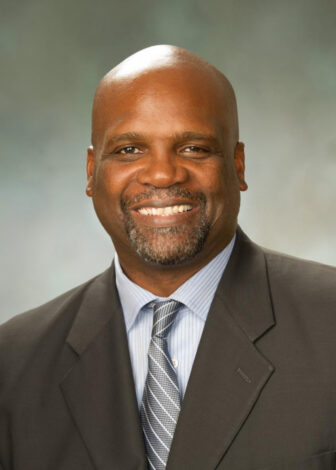Jevon Hunter, a professor of urban education at SUNY Buffalo State, spoke to the Beacon school board on Monday (Dec. 14) about creating a “culturally relevant curriculum.”

What is a culturally relevant curriculum?
It’s a curriculum that speaks to the lived experiences of young people. Often, the curriculum is disconnected from their lives or tends to privilege one ethnic or racial group. We’re trying to interrupt that and provide additional voices and identities within education. It’s important to recognize how different ethnic groups were able to persist — even resist — and thrive in environments that were set up to prevent their success.
Does that mean rewriting history?
It’s not so much that we need to rewrite history, but when we look at historical events, we need to be able to say that the curriculum, as it stands, is here for a particular reason. We need to talk about why a particular history was written in a certain way. We also need to bring in other voices. So often, history in the U.S. is shown as “great white men” doing things to advance the country, but what’s left out are the roles of ordinary citizens, women and communities of color. It’s like doing a curriculum audit, so our students see themselves in it and gain a more robust understanding of history and society.
What do you see happening in Beacon?
I was invited by Dutchess BOCES [Board of Cooperative Educational Services], the Beacon school district and others in your region to engage in these types of conversations. We’re at a moment in this country where it’s something that students and communities are craving.
Why is that?
To be blunt, school does two main things: It helps construct the identities of young people, and it helps build empathy. This work gives us a chance to ask important questions: Do I see you as a human being who is worthy of being treated fairly? In 2020, the presidential election, COVID-19 and the murders of Black and brown people — these are the topics we should be talking about in school, today and beyond. We need to ask fundamental questions about our identities as Americans and our capacity to care for one another, particularly in times of distress.
Does a culturally relevant curriculum impact white students?
Absolutely. It presents them with an understanding of the lives of people of color and how they have contributed to the building of this country that goes beyond the standard narratives. It speaks to the idea of a pluralistic society, because it’s also about how some people were complicit in other peoples’ marginalization. Curriculum shouldn’t just be about celebrating; it should be about examining negative aspects of human behavior so we don’t repeat them again.

“To be blunt, school does two main things: It helps construct the identities of young people, and it helps build empathy.”
I always thought that public schools existed to provide an education to children, particularly in those areas deemed necessary for becoming a productive member of society. Mr. Hunter’s vision looks more like dividing students into us/them groups and what each owes to the other rather than giving them an equal opportunity for a solid educational foundation for their lives.